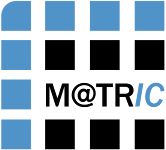Mission
Intensive care medicine deals with the treatment of patients with acute life-threatening illness or severe trauma. It is now a separate, mature and high-technological medical discipline in which intensive monitoring and support is provided to different organ systems such as brain, heart, lungs, liver and kidneys, through a combination of pharmacological therapies and sophisticated medical devices.
Intensive Care medicine has an essential place in every health care system, as it is treating the sickest patients of all the medical disciplines. On average 10% of all beds in Belgian hospitals are intensive care beds. Intensive care medicine is extremely expensive (around 0.5% of GDP) and consumes a large fraction of the health care resources.
The deployment of “Information and communication technology (ICT)” in health care has become essential to improve the quality of care and efficiency. Intensive Care medicine is especially suitable for computerization because it is an extremely data-rich environment. The amount of data generated in the ICU is so overwhelming that it often leads to data-overload which can even result in information loss. More than 236 different variable categories are reported in one single medical ICU record and this far exceeds human cognitive capacities.
“Patient data management systems (PDMSs)” with focus on the ICU were increasingly implemented since the beginning of this century. Such a PDMS requires that each ICU patient has a dedicated bed-side PC client. Interfaces are provided with all monitoring devices, ventilators and syringe pumps with automated data collection occurring every few minutes. Additional data are inputted manually if necessary. These systems also include “Computerized Physician Order Entry (CPOE)” and interfaces with the hospital information system, including the lab system, resulting in a database in which each patient generates between 10,000 and 20,000 data values on a daily basis.
In 2007 the 3 ICUs of the university hospitals of Antwerpen (UZA), Ghent (UZ Gent) and Leuven (UZ Gasthuisberg Leuven) started a joined and ambitious project under the name M@tric. The aim of this “Big Data” project was to create an interuniversity database containing high-quality and complexly interrelated data from all 9,000 adult patients annually admitted to the ICU of the participating university hospitals.
The project was funded in 2009 by the Flemish government via the Hercules program of the Research – Flanders (FWO).
A multidisciplinary team from the 3 participating ICUs was set up to integrate all clinically relevant data from the 3 PDMSs of the 3 participating ICUs with focus on data quality, data semantics and standardization, data privacy and security. The project was supported by an external company. The M@tric database contains more than 800 variables per patient with a high granularity (e.g. physiologic variables every minute).
The project was officially launched in 2017 and is now fully operational and contains already more than 25,000 patients (January 2018).
The M@tric allows high-level clinical research and the research of the M@tric consortium focusses on the following domains:
- epidemiological and clinical research
- knowledge discovery, data mining, machine learning and predictive modeling
- longitudinal data analysis and causality
- translational research
- health economic research
The M@tric consortium is open to collaborate with other research groups from Belgium and abroad, including data sharing projects.

